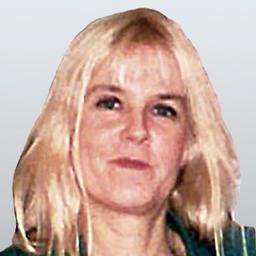Selling milk looks easy and even fun when you see the “Got Milk” celebrity mustache ads. It’s neither. Despite more than twenty years of the mustache ads, milk sales continue to fall at a fast clip. The National Dairy Promotion and Research Program and the National Fluid Milk Processor Promotion Program, responsible for milk marketing, blame weak sales on calcium fortified juices and vitamin enhanced beverages which they say have “undermined” milk’s healthy image and are more available than milk “in many eating establishments.”
While McDonald’s removal of soft drinks from Happy Meal menus and marketing materials may improve milk sales in young people, elsewhere there is such a glut of excess and unwanted milk that Vermont dairy producers actually dumped gallons of milk into the soil recently rather than accept low prices. Nice. Meanwhile, US dairy operators blame declining milk sales on replacing whole milk with skim or low fat milk in school lunch programs which they say the kids dislike and throw out.
Fluid Milk Processors have tried everything to get people to drink more milk and the government has helped them, shipping posters of mustache wearing actors, sports figures, musicians and models to 60,000 US elementary schools and 45,000 public middle and high schools. Got Milk ads appear in youth-oriented magazines like Sports Illustrated for Kids, Spin, Electronic Gaming, CosmoGirl, Blender and Seventeen and there have been school promotions like “the Healthiest Student Bodies” in which students could win iPods and Fender guitar for going to a milk marketing website.
There has also been in-class selling, like three California high schools that let students create their own Got Milk campaigns aimed at their peers for a chance to win $2000 and an all-expense-paid trip to San Francisco to present their ideas to the milk campaign’s ad agency and milk officials.
The milk lobby has even tried to convince people that milk is a diet food. (ad pictured) “Studies suggest that the nutrients in milk can play an important role in weight loss,” said milk ads that kicked off the Great American Weight Loss Challenge a few years ago. “So if you’re trying to lose weight or maintain a healthy weight, try drinking 24 ounces of low-fat or fat-free milk every 24 hours as part of your reduced-calorie diet.”
But soon after the Challenge was rolled out, a study of 20,000 men who increased their intake of low-fat dairy foods in The American Journal of Clinical Nutrition rained on their parade. The men did not lose weight.
The bad science got milk marketers in trouble with the Federal Trade Commission’s Bureau of Consumer Protection (FTC) which told them to stop the weight loss campaign “until further research provides stronger, more conclusive evidence of an association between dairy consumption and weight loss.”
After the reprimand, milk marketing materials claimed that low fat dairy products do not necessarily add weight and may have “certain nutrients that can help consumers meet dietary requirements,”--pretty much the definition of “food.” Soon the marketing switched to an attack on other beverages. “Soft drinks and other sweetened beverages are now the leading source of calories in a teen’s diet and these nutrient-void beverages are increasingly taking the place of milk,” it read.
The problem with milk is--even if people liked the taste which many don’t, doctors increasingly say it is not good for you. Animal advocates and environmentalists add that the dairy industry is frequently linked to worker, animal and environmental abuse. Clearly, it will take more than cute mustache ads to make people drink milk.





